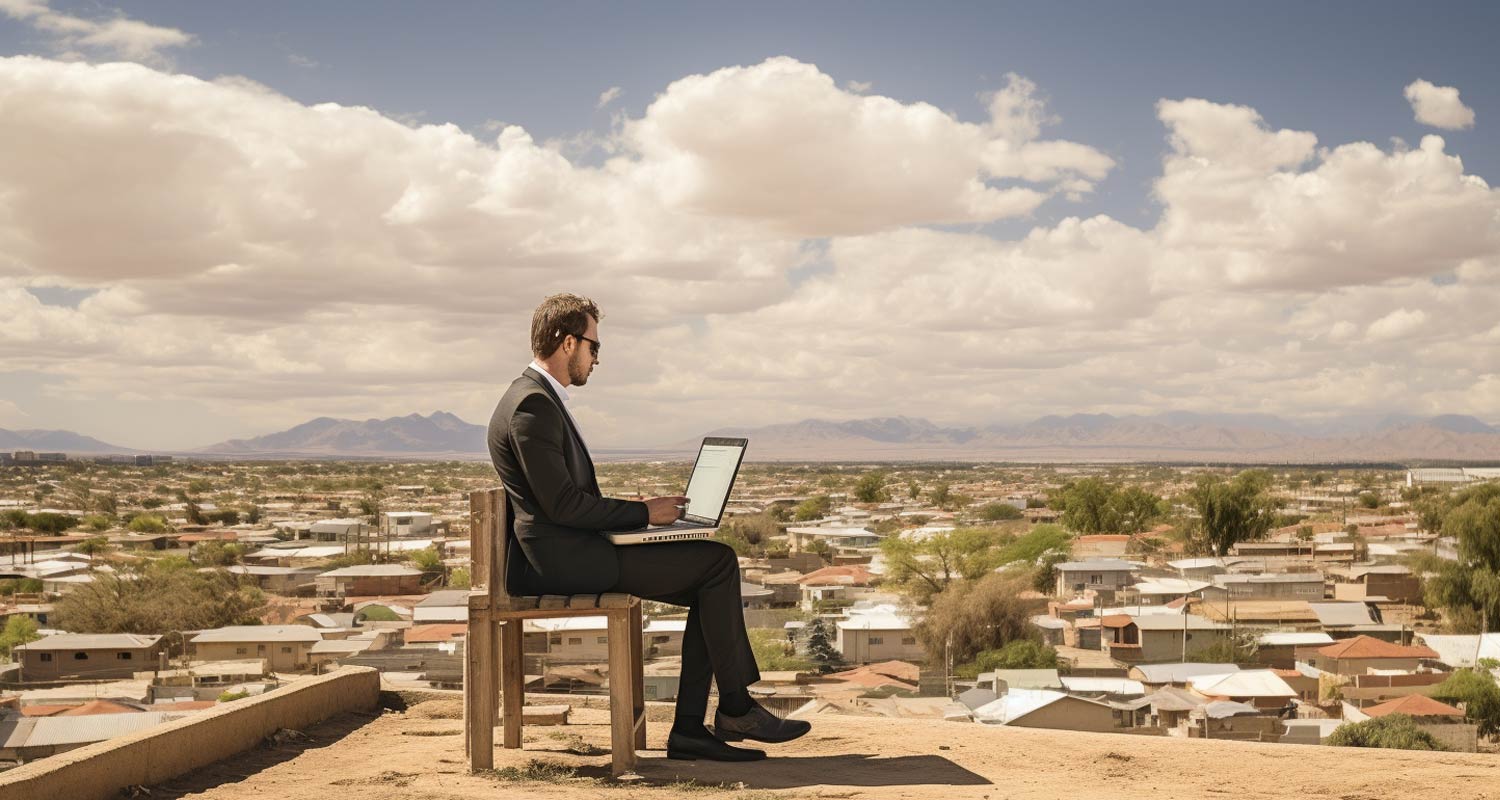 Namibia is the latest of four African countries to offer digital nomad visas to remote workers. Mauritius, Cape Verde and the Seychelles also all have visa programmes targeting digital nomads, yet South Africa still lags behind.
Namibia is the latest of four African countries to offer digital nomad visas to remote workers. Mauritius, Cape Verde and the Seychelles also all have visa programmes targeting digital nomads, yet South Africa still lags behind.
A digital nomad visa allows someone to live in a country that is not their homeland while working remotely for a company based outside the one they live in. Governments that issue digital nomad visas never refer to them as such, choosing to call them residence permits or devising a special name for them. The permit generally expires after 12 months and the option to renew varies from country to country.
“Normally someone who qualifies for this visa is a high-income earner. They will stay in a hotel or rent a big house and spend their money in the local economy,” said Richard Firth, chairman and CEO of software engineering firm MIP Holdings.
Several factors have helped drive demand for digital nomads. In particular, travel restrictions due to the Covid-19 pandemic dealt a big economic blow to countries reliant on tourism. After the pandemic, however, travel volumes did not rebound as expected. Digital nomad visas are seen by some governments as a means of reigniting travel inflows.
“It’s a form of a longevity tourism play aimed at high-earning, high-intellectual property individuals. But instead of having the tourist for the usual two or three weeks, these visas last a year or two depending on the country you’re in,” said Firth.
Covid also led to a sharp rise in the number of remote workers, with many businesses more open to the idea of remote work than they were before the pandemic. Employees or contractors that don’t need to be bound to an office can broaden their horizons beyond working from home in the traditional sense, opting to “make the world their office” instead. “We have 550 people now [working for MIP] and all of them work from home. Covid was the catalyst for that,” said Firth.
In the post-Covid era, tourism has contributed between 3% and 4% to South Africa’s GDP each year, a sharp decline from the 6.4% contribution made by the sector in 2019.
Digital nomad visas
Considering the country’s attractiveness as a tourist destination, having a digital nomad visa programme could attract a higher number of visitors for longer stays. President Cyril Ramaphosa acknowledged this in his February 2022 state of the nation address when he promised “a comprehensive review of the work visa system and new visa categories that could enable economic growth, such as a start-up visa and a remote working visa”. Implementation, however, has been sorely lacking.
The Democratic Alliance-led Western Cape government has been agitating for some time for national government to introduce a digital nomad visa in South Africa. The provincial government, citing home affairs minister Aaron Motsoaledi, said in July that the programme had been delayed because existing legislation doesn’t allow for its implementation.
Read: There’s more to the skills crisis than emigration
But progress in making the necessary changes to the Immigration Act has also been glacial.
“To be fair, we [South Africans] are slow off the mark in just about everything. If you are quick, you get it, but if you are slow, then by the time you get there, someone has eaten that lunch already. The fact is that we are the prime country to supply this type of visa programme and we do want tourists to come here,” said Firth.
He said an estimated 40% of the 120 000-strong software developer workforce in South Africa work remotely for foreign companies. As such, the availability of digital nomad visas in neighbouring countries could threaten an exodus of skills.
 “Say you have a person living in South Africa earning in dollars or pounds and converting that to rands. They might decide to take advantage of a nomad visa and choose to live somewhere else. South Africa is already losing because this person is externalising their intellectual property and income, but we would still collect the tax revenue. If that digital nomad visa stretches out for more than 183 days, we will lose the tax revenue from that individual,” said Firth.
“Say you have a person living in South Africa earning in dollars or pounds and converting that to rands. They might decide to take advantage of a nomad visa and choose to live somewhere else. South Africa is already losing because this person is externalising their intellectual property and income, but we would still collect the tax revenue. If that digital nomad visa stretches out for more than 183 days, we will lose the tax revenue from that individual,” said Firth.
In the longer term, South African employees who can work from home may see digital nomad visas offered by other countries in the region as an attractive option. Deteriorating living standards, lack of service delivery, an unreliable electricity supply and increased concerns about safety and security could make digital nomad visas more attractive.
“Safety and security is a big issue. Not many South Africans qualify for an international passport but this is giving many the opportunity to leave. And although they’ll keep working for South African companies, they’ll be socialising in and contributing to a different environment,” said Firth. “Because they are socialising in different circles, their next job may not be from a South African firm, and the country would lose them completely.”
Read: Ramaphosa moves to address South Africa’s skills crisis
However, South Africans looking to pursue the nomadic lifestyle should pay close attention to the rules and benefits provided by the visa they apply for in a foreign country. Minimum income level stipulations are usually a key requirement for these visa programmes. So, too, is having health insurance or medical aid from a supplier local to the country of choice. Of particular concern, though, are the tax implications for those working outside of South Africa.
For the employers there is a dilemma: the presence of employees in a foreign state can create a tax presence for the employer
“Some countries see virtual workers as [positive contributors] but only on condition that taxes are paid locally… Not all countries are open to these modern, cross-border employer/employee relationships and advice should be sought before residing for too long in a territory,” said Lino De Ponte, director of employer services and immigration law at Deloitte African Tax & Legal.
In general, a South African looking to live abroad, regardless of where their employer resides, must first check if South Africa has a double taxation agreement with the country they want to live in. If an agreement exists, then that legislation will apply. If not, then the individual is by default a South African tax resident and the following rule applies: if the individual resides in a foreign country for more than 183 days of a given 12 month period, 60 of which must be continuous, then the first R1.25-million of their income will not be taxed in South Africa. This rule and its application does get tricky, and seeking expert advice before relocating is advisable not only for individuals but for employers, too.
Read: South Africa gets first AWS skills centre outside the US
“For the employers there is a dilemma: the presence of employees in a foreign state can create a tax presence for the employer; whether the staff member is taxable in their personal capacity or not is often irrelevant,” said De Ponte. – © 2023 NewsCentral Media



